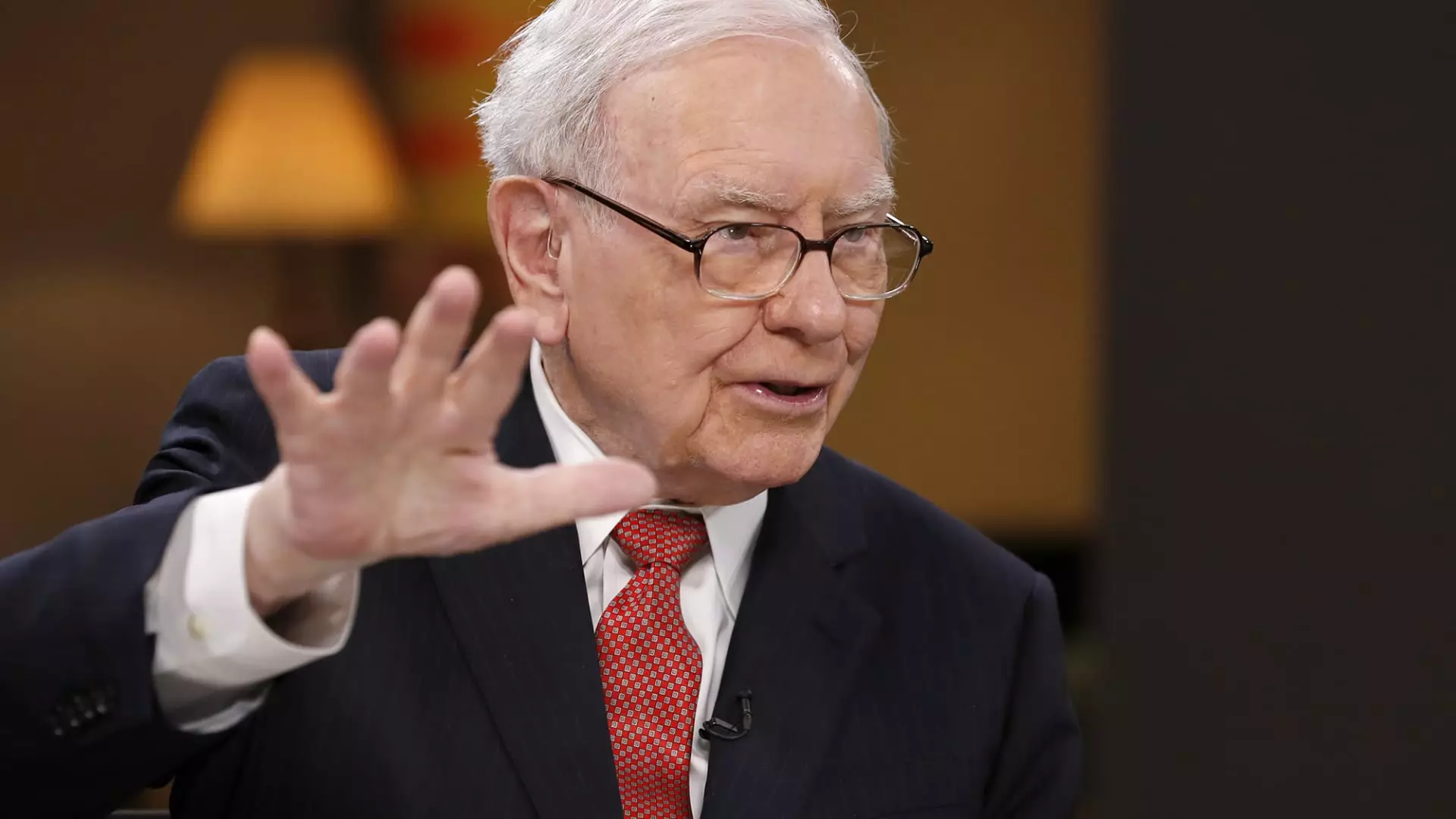Warren Buffett, often hailed as the “Oracle of Omaha,” is not just known for his shrewd investments and business acumen but also for his unique approach to philanthropy. As the CEO of Berkshire Hathaway, Buffett has built an impressive fortune estimated at $150 billion. However, his views on wealth transfer and family inheritance sharply contrast with societal norms surrounding dynastic wealth. In a recent announcement, Buffett unveiled that he had appointed independent trustees to oversee his charitable contributions, firmly indicating that he intends to reshape the conversation around family wealth and its impact on future generations.
For Buffett, leaving behind a monumental inheritance for his three children is not on the agenda. He has pledged to donate an astounding 99% of his wealth, redirecting this capital into various philanthropic efforts rather than onto the laps of his children. Buffett’s philosophy is rooted in the belief that excessive wealth can diminish personal growth and complicate familial relationships. By deliberately choosing to limit the inheritance of his children, Buffett aims to foster independence and discourage a sense of entitlement that often accompanies inherited wealth.
In his candid communications, Buffett articulated his concerns regarding the unpredictable nature of wealth distribution across generations. He argues that future descendants may not possess the same priorities or understanding of philanthropy, which leads to a disconnect between the original intent of the wealth creator and its eventual use. He remarked, “Who can foresee the priorities, intelligence, and fidelity of successive generations to deal with the distribution of extraordinary wealth?” His words reflect a broader societal issue regarding the sustainable management of wealth and the responsibilities that come attached to it.
To ensure that his philanthropic aspirations are realized, Buffett designated three independent trustees to potentially succeed his children in disbursing his wealth. While he expresses confidence in his children’s abilities, he recognizes that the emotional complexities involved in family dynamics might hinder their capacity to distribute wealth impartially. The trustees, who remain unnamed, are expected to bring fresh perspectives and a non-familial lens to the philanthropic landscape he wishes to cultivate.
Buffett’s children, now aged 71, 69, and 66, have been under his watchful eye, allowing him to assess their capabilities in handling large sums and understanding human behavior in various contexts. He stated, “The 2006-2024 period gave me the chance to observe each of my children in action, and they have learned much about large-scale philanthropy.” This insight has shaped his decision to leverage external trustees, ensuring that the wealth is not just a tool for personal gain but a catalyst for positive societal change.
Buffett’s donation strategy is not a posthumous act of charity; rather, it is a progressive initiative that has been in place since 2006, with annual contributions to four family foundations. His proactive approach to philanthropy emphasizes a long-term vision that seeks to make a meaningful impact on society. By actively engaging in charitable efforts rather than simply bequeathing his wealth, Buffett has established a precedent for responsible wealth stewardship among the elite.
His commitment to philanthropy aligns with the broader movement of billionaires pledging significant portions of their wealth to charitable causes. By openly discussing his intentions and rationale, Buffett encourages a culture of giving that extends beyond mere financial contributions. He showcases the importance of strategic philanthropy—directing capital toward causes that can spur meaningful change rather than inflating the status quo of wealth accumulation.
A Example for Future Generations
Buffett’s legacy transcends his financial achievements; his approach to wealth distribution has profound implications for current and future philanthropists. As societal dialogues increasingly focus on economic inequality and the responsibilities of wealth, Buffett’s model offers valuable insights. He urges upcoming generations to consider the broader ramifications of their fortunes amidst changing social landscapes.
Warren Buffett’s stance against dynastic wealth reflects a radical yet meaningful shift in how we view inheritance and philanthropy. By pledging to contribute the majority of his fortune to charitable causes and appointing independent trustees, Buffett encourages a conversation about responsible wealth management that prioritizes societal impact over personal enrichment. His example serves not only as a guideline for affluent individuals but also as a call to reevaluate the fundamental tenets of wealth, value, and legacy in a rapidly evolving world.

